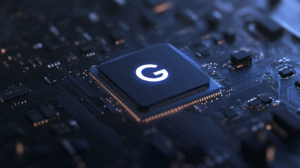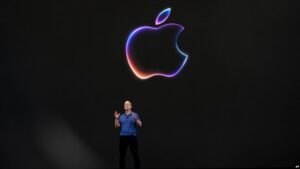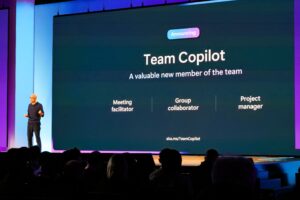Hey, Tech enthusiast! Your Daily Dose of Tech This Friday is here @DawentsIT …We Inspire To Deliver!
Your Daily Dose Of Technology News – November 14, 2025.
1. Google unveils Gemini 2 Series and new AI chips:

– Google announced a new Gemini 2 family (multimodal LLM updates) plus the next-generation TPU/GPU hardware and cloud offering optimized for those models.
– Capabilities: improvements in reasoning and coding, better multimodal fusion (video+text+speech), and features aimed at enterprise adoption—data residency controls, auditing, and explainability tools.
– Google unveiled or previewed new AI accelerators emphasizing energy efficiency and throughput for large models, along with lower-latency A3-like instances in Google Cloud.
Stronger competition in cloud AI services and model performance, enterprise push with compliance and data governance features.
In Other News:
2. OpenAI announces GPT-5 family and new responsive AI platform:
– OpenAI introduced the GPT-5 family (several sizes) and a new product/service layer called “OpenAI Responsive” (or similar branding) that combines large multimodal models with streaming, real-time interaction features, on-device inference options for smaller models, and stronger safety/guardrails.
– Key features: Much better reasoning, longer context windows (reported in the hundreds of thousands of tokens for large deployments), improved multimodal understanding (images, video frames, audio), API streaming for low-latency interactivity, and on-device SDKs for mobile and edge devices with model distillation options.
– New commercial tiering and pricing changes, expanded enterprise contracts, and integrations with major cloud providers. OpenAI highlighted partnerships for regulated industries (finance, healthcare) with additional compliance tooling.
Accelerates AI adoption in interactive applications (agents, virtual assistants, real-time transcription + reasoning), raises renewed regulatory and safety questions, and intensifies competition with Google, Anthropic, Meta, and other model makers.
3. Apple releases macOS 14.2 / iOS 19.2 developer seeds with expanded on-device AI:
– Apple seeded developer betas for macOS 14.2 and iOS 19.2 that include expanded on-device generative AI features, new APIs for developers (on-device model hosting, private inference), and improved integration of assistant features across apps.

– Enhancements to Live Text, on-device speech recognition accuracy improvements, and privacy controls showing what models/apps access.
Apple continues to emphasize privacy-minded AI that runs on-device where possible; this will shape developer strategies and the ecosystem for privacy-first applications.
4. EU and UK regulatory moves on generative AI transparency and safety:
– European regulators released updated guidance and enforcement plans for the AI Act’s implementation, focusing on transparency, model risk assessments, consumer protections, and watermarking standards for synthetic content. The UK issued parallel guidance for high-risk AI systems and new data-use constraints.
– Governments emphasized provenance labeling, penalties for noncompliance, and timelines for audits for large providers. There were also proposals to require safety testing for “foundation models.”
Stronger legal compliance requirements for AI companies operating in Europe and the UK, likely increased costs for governance and content provenance systems.
5. Samsung and TSMC collaborate on AI-focused mobile SoC and packaging advances:
– Samsung announced a new mobile SoC architecture optimized for on-device generative AI, with packaging/stacking innovations jointly developed with TSMC or manufacturing partners (announcements described expanded N3/N2 node planning and advanced chiplet/stacking to improve memory bandwidth).
– Mobile devices will increasingly support more capable on-device generative AI features while improving power efficiency.
Odds And Ends:
6. Microsoft integrates advanced AI into Office and Teams; announces Copilot Pro tiers:

– Microsoft launched further Copilot enhancements across Office 365 and Teams—real-time meeting summarization with speaker-attributed action items, code-aware help in Visual Studio, and Copilot Pro tiers for enterprises with expanded data connectors and tenant controls.
– Microsoft emphasized enterprise security, data handling, and integration with Azure OpenAI and its own model stack.
Rapid adoption in productivity workflows; pressure on smaller vendors; importance of enterprise trust and data governance.
7. Major security incidents and alerts:
– Several cybersecurity developments were reported:
* A new supply-chain compromise affecting a widely used developer package (details varied by report) triggered emergency updates across open-source ecosystems.
* Ransomware group activity spiked targeting managed service providers (MSPs) and healthcare providers in recent days; authorities urged patching and multi-factor authentication.
* Browser/IoT zero-days: vendors rushed patches for actively exploited vulnerabilities; users and enterprises were advised to apply updates immediately.
Continued reminder to prioritize patching, supply-chain auditing, and layered defenses.
8. AI chips and semiconductor market updates:
– Earnings previews and market commentary from major chipmakers (NVIDIA, AMD, Intel) continued to show strong AI-data-center demand but also noted longer-term capacity planning, pricing dynamics, and logistical challenges. NVIDIA remains dominant in datacenter GPUs; competitors highlight differentiation in power efficiency or integration (chips + software).
– Some foundry capacity announcements and investment plans from TSMC and Samsung to expand AI-focused nodes and packaging.
9. Social platforms and content moderation changes:
– Major social platforms (Meta, X/Twitter, TikTok) announced new moderation tools, synthetic media labeling, or adjustments to recommendation algorithms to combat misinformation and election-related manipulation. Some platforms trialled “trusted content” indicators and creator verification upgrades.
– Ongoing tension between content moderation, free expression, and platform business models; developers and creators must adapt to new policies and monetization rules.
10. Space, hardware, and consumer electronics highlights:
– A few consumer hardware launches and updates were reported—new laptops and foldable devices from major OEMs, and accessories with integrated AI features. Space/launch firms reported scheduled satellite launches and further deployments of hyperscale LEO broadband constellations.
– Faster rollout of consumer devices with AI capabilities and continued growth in satellite internet coverage.
Summary:
– Regulatory developments: enforcement details of the EU AI Act and UK rules—how providers adapt to watermarking, transparency and high-risk designations.
– Competition among foundation-model providers: productization, enterprise compliance features, and pricing will be decisive in the next quarter.
– On-device AI adoption: mobile SoCs and OS-level APIs (Apple, Android) will determine how much inference moves offline for privacy and latency reasons.
– Security and supply chain: potential further incidents as attackers target AI supply chains and managed-services providers.
If you need a summary on any specific topic or more detailed information on emerging tech trends, feel free to ask us @DawentsIT or visit our website at www.dawentsit.com
Follow us for updated news, articles, and videos. Read more on http://www.dawentsit.com/ #Technology #DawentsIT #TechnologyNews #Tech #Google #Gemini2Series #MultimodalLLM #OpenAI #GPT5 #Apple #AllThingsTechnologyNews #AllThingsTechnologyNewsToday #WeInspireToDeliver

What I really liked is how easy this was to follow. Even for someone who’s not super tech-savvy, it made perfect sense.
Your tips are practical and easy to apply. Thanks a lot!
You’ve clearly done your research, and it shows.
I’ll definitely come back and read more of your content.
This content is really helpful, especially for beginners like me.
You explained it in such a relatable way. Well done!
You’ve done a great job with this. I ended up learning something new without even realizing it—very smooth writing!
Your tips are practical and easy to apply. Thanks a lot!
Thank you for offering such practical guidance.
I wish I had read this sooner!
I agree with your point of view and found this very insightful.
I wasn’t sure what to expect at first, but this turned out to be surprisingly useful. Thanks for taking the time to put this together.
You clearly know your stuff. Great job on this article.
Your content never disappoints. Keep up the great work!
This gave me a whole new perspective. Thanks for opening my eyes.
I’ve read similar posts, but yours stood out for its clarity.
I’ve bookmarked this post for future reference. Thanks again!